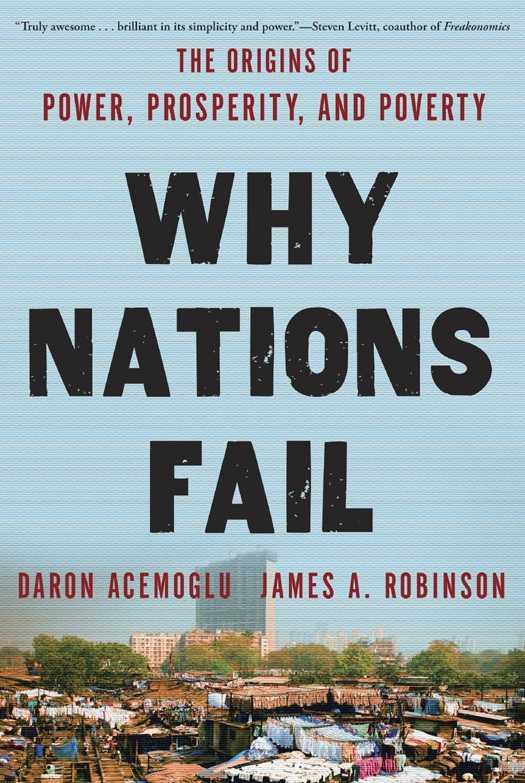
PRAISE FOR Why Nations Fail
“Acemoglu and Robinson have made an important contribution to the debate as to why similar-looking nations differ so greatly in their economic and political development. Through a broad multiplicity of historical examples, they show how institutional developments, sometimes based on very accidental circumstances, have had enormous consequences. The openness of a society, its willingness to permit creative destruction, and the rule of law appear to be decisive for economic development.”
—Kenneth J. Arrow, Nobel laureate in economics, 1972
“The authors convincingly show that countries escape poverty only when they have appropriate economic institutions, especially private property and competition. More originally, they argue countries are more likely to develop the right institutions when they have an open pluralistic political system with competition for political office, a widespread electorate, and openness to new political leaders. This intimate connection between political and economic institutions is the heart of their major contribution, and has resulted in a study of great vitality on one of the crucial questions in economics and political economy.”
—Gary S. Becker, Nobel laureate in economics, 1992
“This important and insightful book, packed with historical examples, makes the case that inclusive political institutions in support of inclusive economic institutions is key to sustained prosperity. The book reviews how some good regimes got launched and then had a virtuous spiral, while bad regimes remain in a vicious spiral. This is important analysis not to be missed.”
—Peter Diamond, Nobel laureate in economics, 2010
“For those who think that a nation’s economic fate is determined by geography or culture, Daron Acemoglu and Jim Robinson have bad news. It’s manmade institutions, not the lay of the land or the faith of our forefathers, that determine whether a country is rich or poor.
Synthesizing brilliantly the work of theorists from Adam Smith to Douglass North with more recent empirical research by economic historians, Acemoglu and Robinson have produced a compelling and highly readable book.”
 Daron Acemoglu
Daron Acemoglu